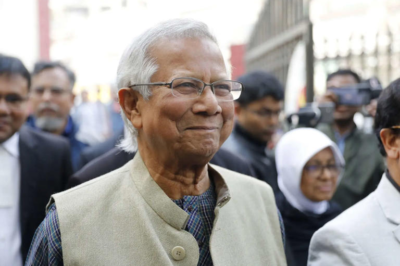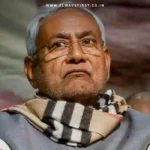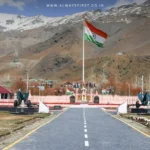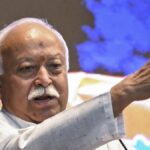
Nobel laureate Professor Muhammad Yunus has expressed deep disappointment with India for not supporting Bangladesh during its political upheaval. Yunus, who recently returned from Paris, took the oath as the head of the interim government following the removal of Prime Minister Sheikh Hasina. In his new role, Yunus has pledged to ensure the safety and security of all Bangladeshi citizens, marking a significant shift in the country’s leadership.
Yunus’s Commitment and Criticism
Yunus emphasized the importance of regional peace and the crucial role India plays in supporting democracy in Bangladesh. He highlighted the potential for migration to exacerbate tensions, especially in politically charged times. “If it prolongs and takes turn towards more confrontations, spillover of people across the borders will be a natural outcome,” Yunus explained.
He criticized India for not actively encouraging Bangladesh to hold transparent elections. “Supporting Bangladesh to remain an ideal democratic peaceful country is in the best interest of all neighboring countries,” Yunus stated. He lamented India’s failure to promote democratic processes in Bangladesh and stressed the need for India to applaud transparent elections and criticize deviations from them.
Personal Challenges and Political Unrest
At 84, Yunus faces charges of corruption in Bangladesh, which he denies. He criticized the previous government’s communication with the populace, attributing the unrest to its unchallenged rule over three terms. “It is one country, one party, one leader, one narrative,” Yunus remarked.
The mass protests in Bangladesh originated from discontent over a quota system allocating 30 percent of government jobs to relatives of veterans from the 1971 War of Independence. Initially led by student groups like ‘Students Against Discrimination,’ the protests quickly evolved into broader demands, including Hasina’s resignation. The Supreme Court’s decision on July 21 to eliminate most quotas failed to quell the unrest, with protesters seeking justice for those killed, the restoration of internet connections, and the reopening of educational institutions.
Economic Backdrop and Further Unrest
Bangladesh, once one of the fastest-growing economies globally, now faces economic stagnation, with inflation around 10 percent and dwindling dollar reserves. High youth unemployment and sluggish job growth in the private sector have made public sector jobs, which offer regular wage hikes and privileges, increasingly desirable.
Hasina’s fourth consecutive term in office, secured through a controversial January election boycotted by the Bangladesh Nationalist Party (BNP), has been marred by allegations of sham elections and government repression. The BNP has accused Hasina’s administration of persecuting millions of its supporters and arresting thousands ahead of the election. Hasina, in turn, has blamed the BNP for instigating anti-government protests that have led to significant violence and unrest.
Conclusion
Yunus’s criticism of India highlights the complexities and challenges facing Bangladesh during this period of political transition. As the interim government steps in, the focus will be on stabilizing the country, ensuring safety and security, and addressing the economic and social issues that have fueled the unrest. The role of neighboring countries, particularly India, will be crucial in supporting Bangladesh’s journey towards a stable and democratic future.









































Leave a Reply